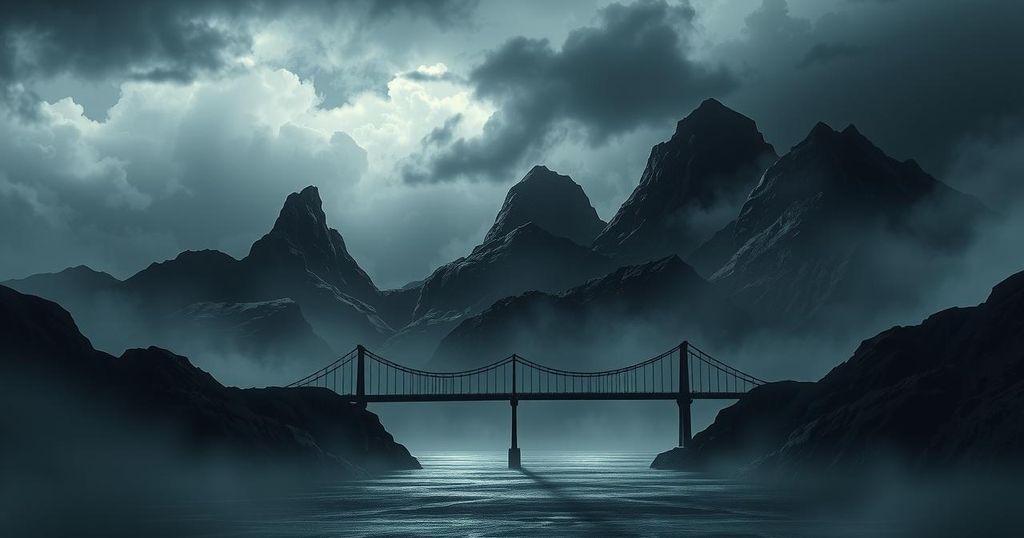Rwandan-Backed M23 Rebels Escalate Conflict in Goma, DRC

The M23 rebel group, which is backed by Rwanda, has seized Goma, a city rich in minerals, leading to a humanitarian crisis with thousands displaced and multiple peacekeepers killed. The conflict, rooted in decades of violence and intervention following the Rwandan genocide, shows no signs of abating, particularly as Western countries call for Rwanda to cease its support for the rebels. Rwanda’s influence in the region remains contentious, further complicating the conflict’s resolution.
The M23 rebel group, supported by Rwanda, has captured the strategic city of Goma in the Democratic Republic of the Congo (DRC). This territory is rich in minerals, prompting thousands to flee as clashes resulted in the deaths of at least 13 peacekeepers. The offensive has faced harsh criticism from Western nations, pushing Rwanda to deny its involvement despite persistent allegations.
The conflict in eastern DRC has deep historical roots, with millions perishing and a significant refugee crisis stemming from events like the 1994 Rwandan genocide. After the genocide, Rwandan Hutu extremists fled into DRC, which led to a series of foreign interventions and the rise of various rebel groups. The M23 group, deemed a proxy for Rwanda, claims to protect Tutsi interests and accuses the Congolese government of violating a 2009 peace agreement.
In 2022, the M23 launched an aggressive campaign, seizing significant territory in North Kivu. The group controls coltan-mining areas, generating substantial revenue, and seeks further exploitation of Goma’s mineral wealth, including gold and diamonds. Their recent actions have exacerbated tensions with the Congolese government, leading to the deaths of military leaders and sustained combat near Goma.
The ongoing violence has severely strained relations between DRC and Rwanda, with the Congolese government severing diplomatic ties and accusing Kigali of waging war. Numerous Western countries, including Britain and the United States, have condemned Rwanda’s involvement in the conflict, urging a cessation of support for M23.
Rwanda’s engagement in the conflict raises questions due to efforts to bolster international relations, including partnerships with prominent sports organizations and tourism campaigns. However, Rwanda’s reliance on foreign aid complicates these dynamics, as substantial portions of its budget derive from international assistance. The situation in the region remains volatile, impacting countless civilians and international diplomacy.
The conflict in eastern DRC dates back over three decades, deeply entwined with regional history marked by ethnic tensions and foreign military interventions. Since the Rwandan genocide in 1994, which prompted mass migrations into DRC, rebel groups have proliferated, causing instability and extensive human suffering. The recent resurgence of the M23 group reflects both local grievances and external influences, particularly from Rwanda, seeking to exert control over economically valuable territories. The M23’s recent actions in Goma underscore the interplay between local governance issues, historical rivalries, and resource control. The group’s similar previous advances in 2012 culminated in international backlash, but with their current resurgence, the implications for regional security are dire. The international community’s response, particularly focusing on Rwanda’s role, is critical in addressing escalating tensions and humanitarian crises in the region.
The M23 rebellion in Goma exemplifies the intricate web of conflict in the eastern DRC, driven by historical grievances, resource exploitation, and regional power dynamics. Despite international condemnation, Rwanda’s alleged backing of the M23 raises concerns about persistent instability. As the conflict intensifies, potential diplomatic resolutions become paramount to rebuild trust and address the humanitarian impacts on vulnerable populations in both DRC and Rwanda.
Original Source: www.telegraph.co.uk






